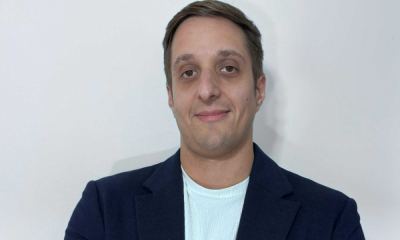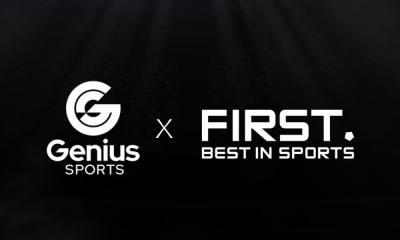Interviews
Spain Spotlight: R Franco on navigating choppy waters
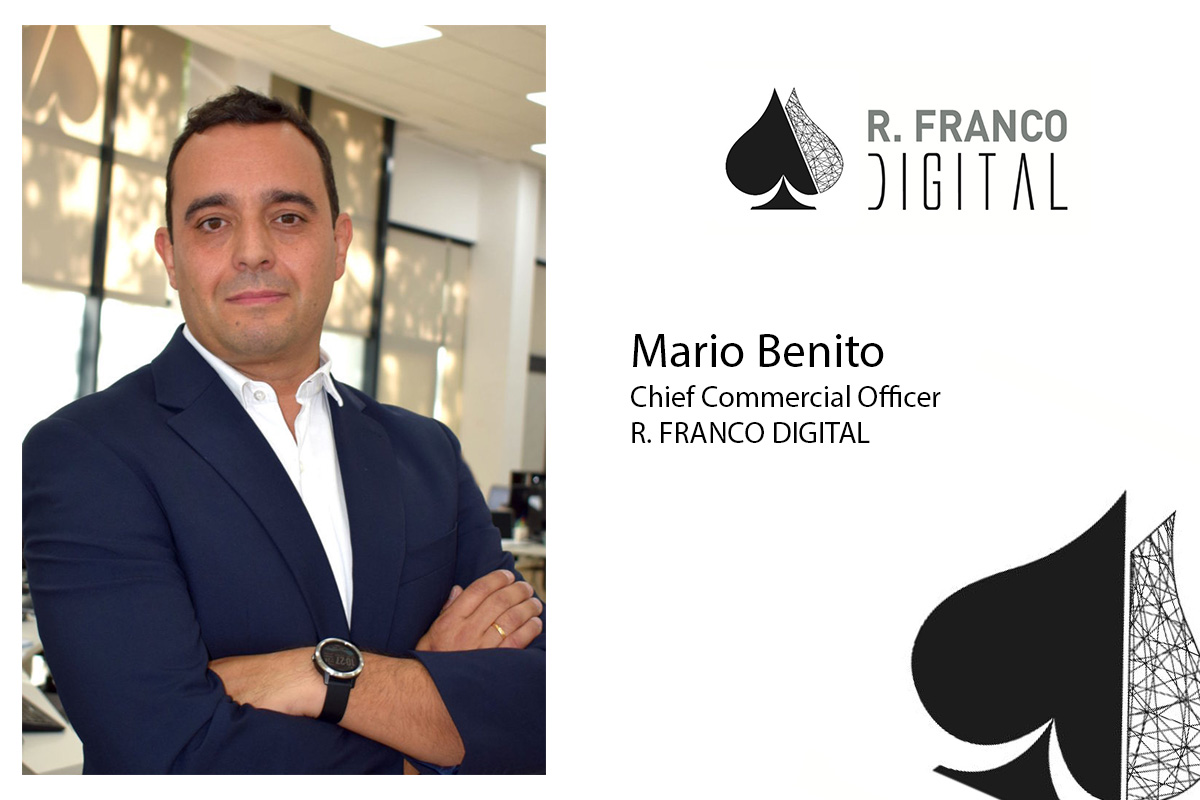
In our two-part series on Spain, Mario Benito, CCO at R. Franco Digital, explains how industry veteran R. Franco Digital is managing to keep pace with increasing restrictions at home while expanding its horizons internationally.
Talk us through R Franco’s 2021 – what were the highlights and do you feel you closed the year with some great success?
The year 2021 was another successful one for the team at R. Franco Digital. We had some massive slot releases including Buttom’s World, Jurassic Slot, and one of our first sequels, Wild West 2. Wanabet, a Spain-focused operator brand also secured an invaluable partnership with FeelSpin to integrate its technology with us, which has greatly helped us boost what we can offer when it comes to live casino. We also partnered with a great list of leading operators, a particular highlight being with our friends the Sisal Group, who now offer our extensive catalog of innovative releases across its regulated markets.
The icing on the cake, and indeed something that we’re absolutely delighted about has been the acquisition of our Gaming Supply License from the Malta Gaming Authority. This has in turn led to us being able to offer our leading online gaming portfolio to a broader international audience than ever before, and the uptake so far has been excellent. Given our heritage as Spain’s most established gaming company, our brand name has served us well in entering new territories, and we plan to continue with that momentum for the rest of 2022.
Looking over to Spain, how has the market weathered the COVID situation, and do you see the potential for this year to return to business as usual when it comes to online?
The online gaming market offers entertainment, and that’s been a key demand through the last two years. The sector has no doubt seen a boost in player engagement, and we’re seeing increasing numbers of demographics giving the iGaming world a try. This to us, and especially in Spain, represents increasing confidence in the online world, and indeed for land-based players adapting to a new preferred channel for gaming.
However, that’s not to say retail and land-based won’t rebound. The great victim of the pandemic in our industry has been land-based casinos, due to the limitations of capacity, if opening at all in some cases. However, the numbers we have seen from Q4 2021 indicate that this trend has improved since 2020’s challenges, and we’re confident of a return to normality.
Given Spain’s heavy marketing restrictions, has that affected the market’s ongoing evolution, and has it proven a challenge for marketers to get their message out?
Understandably, restrictions on advertising and marketing have presented a challenge for all domestic operators and it appears that only those with a large enough customer base in place have been able to remain profitable. From the point of view of the acquisition of new players, the restrictions have deemed it impossible to monetize promotional campaigns for both sportsbook and casino that are tier two and tier three operators, and that will no doubt have an effect.
Likewise, the restrictions in the advertising of sporting events have forced larger operators to compete with smaller operators by running promotions with affiliates. This was previously a marketing tool used by mid-sized operators but is now a key part of advertising for all companies.
There is no doubt that the biggest challenge has been adapting to advertising restrictions, in a fast and legal way. The ability to do this and change so quickly has been one thing that has always surprised me about this sector.
Given the recent news from the Spanish regulator on the introduction of loss limits – how much do you see that affecting players who back heavy favorites and also betting exchange customers?
I believe that this only affects the behaviors of players that it was initially intended for. We believe customers who enjoy our products are players who like to gamble for entertainment purposes only, so this type of limitation should not affect us or them in any way. At the same time, whenever this type of news comes out, it does affect public opinion of gambling through the fact that it is being restricted, which may imply that it needs further prohibiting or sanctions. As we see it, restricting businesses should not be the objective of any Government, however, we of course welcome any initiatives to protect players, and of course tackle problem gambling.
Spain has always been famous for its sports betting culture – how much of a cross-sell have we seen towards casinos for sports betting fans and which verticals are performing best?
Spain is a special market in Europe since there is already plenty of cross-selling between sports betting and online casinos. With that being said, one vertical’s loss will always see another’s gain and during the pandemic, while live sporting events were canceled, the sporting verticals’ decline certainly increased the online casino player base. Post pandemic effective cross-selling has become more critical than ever to ensure the acquisition of new customers, whilst retaining existing players. This can be seen in how cross-promotional campaigns were a key factor in the strong recovery of the sports betting market once live sporting events commenced. This is important because although the sports betting vertical always reigns supreme in popularity, the slot vertical is fast establishing itself as a strong competitor. Overall, as a consequence, both naturally benefit from the success of the other through cross-selling.
R Franco launched IRIS 4.0 just over a year ago and has continued to retain the Spanish crown as the market’s most advanced native platform. How much does the Spanish technological environment differ from the rest of Europe?
IRIS 4.0 has reached a significant degree of maturity and offers our customers the best guarantee of continued success, especially when it comes to Spain. Four years ago, international clients that opted for IRIS are still with us today after verifying the solidity of our newest IRIS 4.0 platform – and its testament to what it’s been able to do. We offer a fantastic arsenal of engagement boosting bonuses, campaign and promotional tools, as well as investing in many years of R&D to make sure we released the best platform possible. The trust of our customers is, as always, the greatest measure of achievement and we look forward to providing them with further developments in the future. The Spanish technological environment doesn’t differ too greatly to the rest of Europe, and this is reflected more so by the many international and domestic clients that make use of IRIS 4.0.
Last but not least, looking to 2022 and R Franco’s MGA license acquired in 2021 – what are your plans for European markets this year and what can we look forward to in the coming months?
We are close to unleashing our full potential with aggregators and customers who value us in regulated markets, which our MGA license is no doubt set to be a fantastic platform for. Soon we will also be able to demonstrate our true potential and bring our unique take on online slots to a much broader audience through new slot releases, further partnerships, and all-around growth of our business. This year has already seen the release of hit games like Witches North and Sabin of Chazos and we are thoroughly excited for what the rest of 2022 will bring – we’ve got some really creative titles in the mix, of course, do get in touch with us at [email protected]!
Powered by WPeMatico
Baltics
HIPTHER Community Voices: Interview with the CEO and co-founder of Nordcurrent Victoria Trofimova
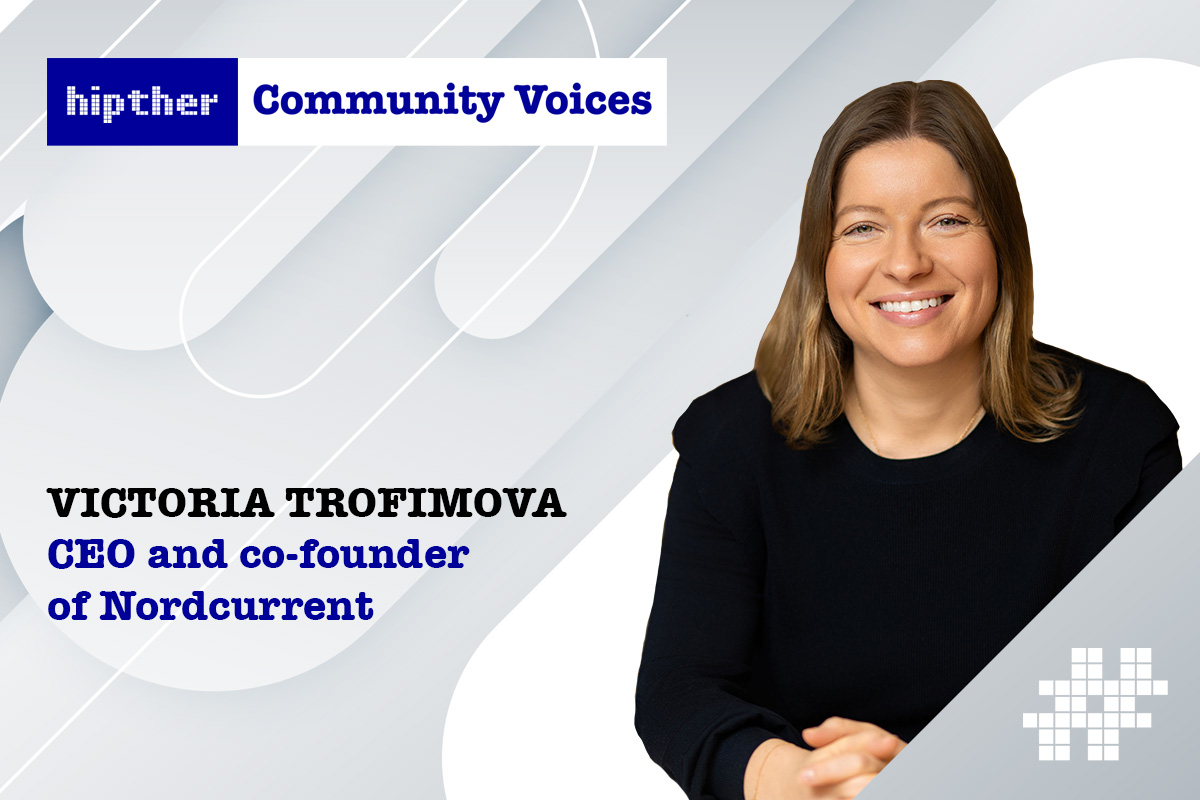
In this edition of HIPTHER Community Voices, we talk with Victoria Trofimova, the CEO and co-founder of Nordcurrent, the biggest game studio to come out of Lithuania and the Baltics. Since starting the company in 2002, Victoria has led Nordcurrent from a small team to an international gaming success story — all without external funding.
She shares how key decisions like focusing on mobile games, building a diverse team, and staying true to their creative vision helped shape Nordcurrent’s growth. We also dive into how she’s helping put the Baltics on the global gaming map, supporting young talent, and what advice she has for the next generation of women leaders in tech.
Nordcurrent has grown into a Baltic powerhouse since its founding in 2002. What were some of the pivotal moments that shaped the studio’s identity and success—especially as a bootstrapped company?
One key moment was our decision to focus fully on mobile gaming early on. That shift, around 2010, allowed us to scale globally with titles like Cooking Fever, which became a long-term success story. Another pivotal step was building and retaining in-house capabilities, from development to marketing, while staying self-funded. Being bootstrapped taught us discipline, resilience, and how to make bold yet thoughtful decisions without external pressure.
You’ve scaled a 360-person team across multiple countries. What have been the biggest challenges—and advantages—of growing Nordcurrent without external funding?
The biggest challenge has been growth pacing. We had to build sustainably, without shortcuts. But that’s also been our advantage; we’ve kept creative control, built long-term trust with our team, and stayed focused on profitability and product quality. It’s a different rhythm, one that favors deep thinking over hype.
Diversity in gaming is still lagging behind. What concrete steps has Nordcurrent taken to drive inclusion, and how do you embed this into studio culture, hiring, and leadership?
We don’t overcomplicate it, we hire the best people who want to build great games with us. We don’t separate or label by gender, background, or title. If someone brings talent, drive, and a collaborative mindset, they belong here. That approach has naturally led to a diverse team, including strong female leadership across departments. We focus on creating an environment where everyone is treated equally, trusted, and heard.
You’ve spoken about attracting global talent to Lithuania and the Baltics. What makes the region appealing—and what misconceptions do you often have to overcome when recruiting internationally?
The Baltics offer a great work-life balance, strong tech ecosystems, and a tight-knit creative scene. But we still need to overcome outdated perceptions; for example, that it’s cold, isolated, or lacking opportunity. The truth is, Vilnius and other cities here are dynamic and are increasingly being recognized for innovation.
In such a saturated gaming market, how does Nordcurrent approach innovation and stay relevant without falling into trend-chasing?
We listen deeply. To players, to data, and to our instincts. With over two decades of experience, we’ve built a rich internal library of what works, what lasts, and what connects. Innovation for us isn’t about reinventing the wheel every time. It’s about layering insight, emotion, and cultural nuance onto strong foundations. We don’t chase trends, we ask how a game fits into people’s lives. That’s why titles like Airplane Chefs resonate. They’re familiar yet fresh, culturally rich but globally accessible. Years of learning has given us the confidence to trust our gut and the clarity to know when to try something bold.
From mobile hits to console and PC publishing—how has your portfolio strategy evolved, and how do you decide what kinds of games to invest in today?
Our mobile success gave us the freedom to diversify. With Nordcurrent Labs, we now publish PC and console games that align with our values: original IP, strong storytelling, and long-tail potential. We look for teams with vision and grit, whether it’s cozy games or narrative-rich adventures.
You recently acquired River End Games and the Cinemaware catalog. What’s the strategic thinking behind those moves, and what can players expect from these legacy properties going Forward?
River End Games brings deep narrative talent and AAA craftsmanship, which complements our publishing ambitions. With Cinemaware, we’re reimagining classics for a new generation. These acquisitions aren’t about nostalgia only, they’re about unlocking untapped creative value in ways that feel both respectful and bold.
How are you helping to nurture the next generation of game developers in the Baltics, and what role do you think studios should play in education or early talent development?
We take this responsibility seriously. As the largest Lithuania-born game developer, we feel a strong duty to help grow the industry, not just our studio. We actively collaborate with the Lithuanian Game Developers Association, support local game jams, and organize major meetups that bring the community together. Our goal is to make the gaming industry more visible, more accessible, and more appealing, especially to young people who may not yet see it as a real career path.
It’s not just about hiring talent, it’s about helping to create it. We believe studios should take an active role in popularizing the industry, opening doors, and building a future where game development is seen as a creative and respected profession.
You’re leading a company that’s rooted in Eastern Europe but competing on a global stage. How do you balance local values with global ambitions?
We don’t see it as a conflict. Our roots give us authenticity and resilience, and these are qualities that resonate globally. We build games that are grounded in strong craft and cultural richness but are universally relatable. Staying true to who we are has been our best strategy for going global.
And finally—what advice would you give to aspiring women leaders in tech and gaming who want to break into this industry and rise through the ranks?
Own your voice. You don’t need to fit a mold to lead. Surround yourself with people who challenge and support you. And remember, leadership isn’t just about a title, it’s about taking responsibility, lifting others, and staying curious. Tech and gaming need your perspective, and there’s room for you at the table.
The post HIPTHER Community Voices: Interview with the CEO and co-founder of Nordcurrent Victoria Trofimova appeared first on European Gaming Industry News.
Interviews
Portrait of a Fraudster Then and Now: How Scammers’ Habits and Tactics Are Changing
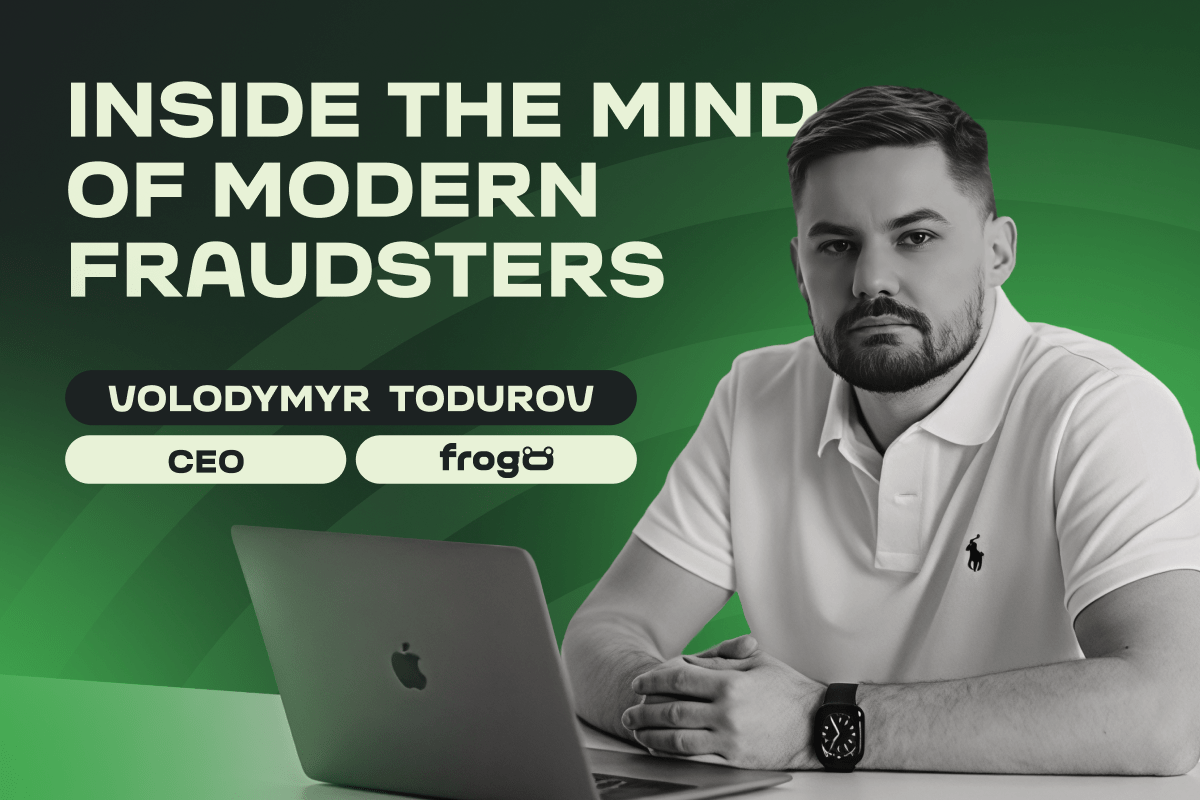
Fraud in the iGaming sector is no longer the work of lone opportunists. Today’s scammers operate in well-organized, tech-savvy networks – quietly exploiting systems that weren’t built to catch them. And as the digital economy grows, so too does the complexity of fraud schemes targeting gaming operators.
Amid this evolving threat landscape, Frogo has emerged as a company redefining how fraud prevention should work. We spoke with Volodymyr Todurov, CEO at Frogo, to get an inside look at how fraudsters are changing their tactics – and what operators can do to stay ahead.
Fraudsters evolve fast – how does your system stay one step ahead without overwhelming teams with false alarms?
Absolutely, the landscape of fraud is constantly shifting and staying ahead requires more than static rules. At Frogo, we’ve developed a dynamic system that adapts in real-time to user behavior and transaction contexts. Our platform learns from both fraudulent and legitimate activities, enabling it to distinguish between the two more effectively. This approach reduces false positives and ensures that our clients’ teams can focus on genuine threats without being bogged down by unnecessary alerts.
Can you walk us through a real-world case where your platform uncovered a fraud scheme traditional tools missed?
Absolutely. One notable case involved a large-scale bot attack targeting SMS-based fraud vectors. Initially, our standard device ID-based defenses helped neutralize the first wave of the attack. However, the adversaries quickly adapted, altering their emulation tactics to bypass traditional checks. At that point, conventional methods were no longer sufficient to detect the evolving fraud.
We responded by implementing a dynamic anomaly detection framework. This involved redefining detection signals in real-time using IP intelligence and deep device fingerprint attributes – areas where our proprietary data collection algorithms provided a significant edge. By anchoring detection logic to more granular and resilient signals, we were able to recalibrate thresholds dynamically, ensuring legitimate users weren’t impacted.
The results were decisive: bot attack efficiency dropped sharply from over 80% to just 3.5%.
What’s something about fraud detection that most businesses get wrong? And how does Frogo challenge that?
A common pitfall we see is operational rigidity – many businesses rely on static rules and general-purpose triggers that result in high false positive rates. This not only burdens anti-fraud teams with unnecessary manual reviews but also degrades the experience for legitimate users, especially loyal or VIP customers.
For example, it’s typical to see blanket rules like “manually verify all payouts over X euros.” While that may seem prudent, in reality it’s inefficient. It overlooks low-value, high-frequency fraud – such as bonus abuse – and disproportionately flags legitimate high-value players.
At Frogo, we take a different approach. Our system adapts rules dynamically based on customer behavior and segmentation. A trusted VIP user with a long-standing reputation shouldn’t be reviewed multiple times a day. But if a wave of new €5 accounts starts exhibiting bonus-hunting behavior, they should run immediate scrutiny – regardless of transaction size.
By aligning detection logic with behavioral context and player reputation, we reduce noise, increase fraud catch rates, and protect real users from unnecessary friction.
How does Frogo automate risk logic without sacrificing the flexibility businesses need to reflect their unique policies and traffic patterns?
At Frogo, we don’t see automation and customization as opposing forces – they operate in different dimensions. Our focus is on automating the customization of risk and scoring policies in a way that respects each client’s specific risk appetite and user behavior.
We achieve this through dynamic triggers. Rather than hardcoding arbitrary rules – like “five failed top-ups per minute equals fraud” – we apply adaptive scoring thresholds that align with real-world usage patterns.. For example, our system might detect that, for a certain payment method and user segment, more than 1.3 failed top-ups per minute is statistically anomalous – because it exceeds the 98th percentile of historical behavior.
But that same trigger adjusts automatically. If the next day a payment provider experiences a technical issue and normal users start retrying more often, the threshold might shift to 2.7. What was anomalous yesterday may no longer be today – and our system adapts accordingly to reflect evolving traffic patterns.
As a result: the clients retain full control over their risk strategy, while Frogo ensures their policies scale efficiently, adapt in real time, and minimize false positives – even in volatile traffic conditions.
Beyond detection – how does Frogo help companies investigate and understand fraud at a strategic level?
Detection is just the beginning. Frogo’s graph-based forensic tools and AI models provide a comprehensive view of the relationships between accounts, transactions and behaviors. This allows companies to identify patterns and vulnerabilities that might not be apparent through traditional analysis. Our analytics layer offers insights into trends and forecasts, enabling businesses to understand the broader context of fraudulent activities and make informed strategic decisions to mitigate future risks.
Fraud might be getting smarter, but so are the solutions built to fight it. Platforms like Frogo are helping operators move beyond reactive security measures and into a space of strategic, data-informed defense. In an industry where trust is everything, that shift might just be the difference between staying one step ahead – or falling behind.
Disclaimer: Frogo’s fraud prevention solutions are developed in full compliance with applicable data protection laws, including GDPR. All behavioural analysis is performed on anonymised or aggregated data, with full transparency and control provided to our clients.
The post Portrait of a Fraudster Then and Now: How Scammers’ Habits and Tactics Are Changing appeared first on European Gaming Industry News.
Interviews
Inside the Matrix: A Conversation with EveryMatrix Founders on Europe, Expansion, and Staying Hands-On
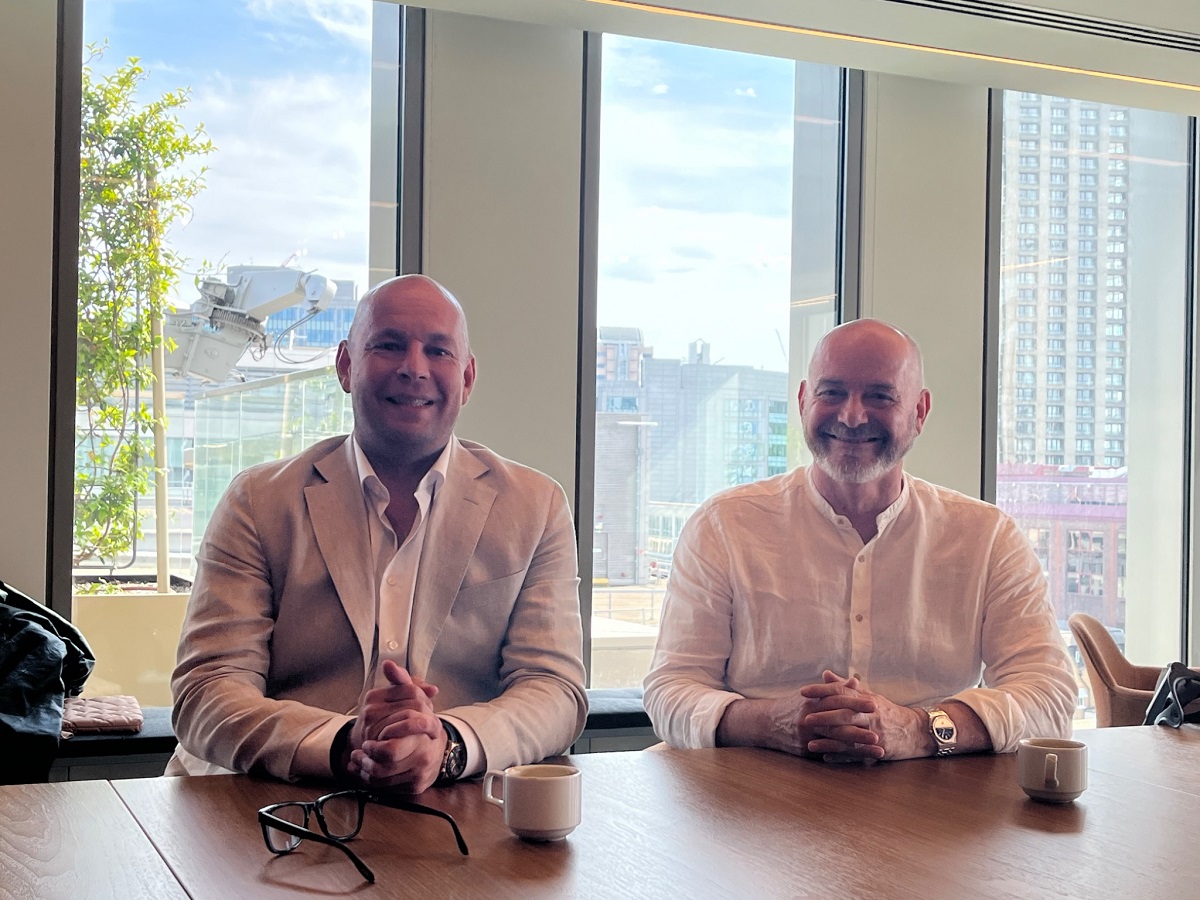
By Maria Emma Arnidou, Event Marketing Director at HIPTHER, for the European Gaming Media
During the recent EveryMatrix Media Day at the company’s opening of their new London office, Co-Founders Ebbe Groes (CEO) and Stian Hornsletten sat down with press to share key insights into their strategic vision. In this exclusive Q&A, we explore their views on the European Market, the evolution of EveryMatrix’s business model, leadership philosophy, and the company’s experience in the ever-evolving U.S. market.
Europe is filled with local heroes. It’s far more fragmented than most people think.
You discussed emerging markets in your presentation. What about Europe – is it considered saturated, or are there still areas of growth?
Ebbe Groes: I really don’t think Europe is saturated at all. In fact, big parts of it are still underdeveloped. Take France for example, it doesn’t allow online casino. Germany has effectively banned it. That’s two of Europe’s three largest economies where casino is either outlawed or nearly impossible. So yes, there is still plenty of room for growth.
Stian Hornsletten: And the market is getting more concentrated around a few bigger players, but even then, it’s not as centralized as in the U.S.
Ebbe Groes: Exactly. Europe is filled with local heroes. You won’t find many players dominating across the board. Kindred, Betsson – they’re strong, but when you go country by country and look at market share, the picture is very fragmented. Even with the economies of scale in marketing – say you sponsor a Premier League team – you’re still not getting the full return unless you’re present across multiple markets. That’s what makes Europe so different from the U.S., where a few big players hold all the cards.
We started with a sportsbook. Now we’re building an ecosystem.
EveryMatrix today operates across multiple verticals with a deeply diversified portfolio. Was this the vision from the start, or did it evolve as the company grew?
Stian Hornsletten: The vision definitely evolved quickly as we grew. We started with OddsMatrix, a B2B sportsbook product that was meant to be an off-the-shelf, managed solution – something that didn’t exist back then. Within a year, we had already expanded into turnkey and PAM solutions. By 2010–2011, we had launched the CasinoEngine and started specializing in product verticals.
We’ve always been very innovation-driven. We keep developing new products – some of which are still under wraps – and R&D remains one of the most exciting parts of what we do. Today, most of our top 10 clients are turnkey. While we still offer standalone modules, our growth has come from cross-vertical synergy.
Despite this scale and complexity, you both remain deeply involved in the company’s day-to-day operations. How do you manage to stay on top of everything across products, people, and processes?
Ebbe Groes: It helps that we’ve been here from the start. I wouldn’t want to be hired into this role now and try to learn everything from scratch – but I’ve had 18 years to absorb it all. We’ve built the company in a way that each vertical operates almost like its own business. For example, the sports division has its own CTO, product team, trading team, and even its own support function. That independence gives us breathing room.
It allows me to focus on high-level strategy, like acquisitions – take FSB, for instance. That required a lot of focus at the start, but eventually it will transition into the core business and require less direct involvement.
Stian Hornsletten: Over the years, we’ve also developed strong planning, reporting, and KPI structures across the business. That consistency makes it easier to monitor everything and integrate new divisions. Whether we open a new office or onboard a new team, we already have the systems in place to support them.
Ebbe Groes: And the same goes for finance and HR. When we opened the London office, the HR team already knew how to handle it – we’d opened three the year before. That kind of maturity allows us to move fast without creating chaos.
“In Europe we have 150 competitors in content; in the U.S., maybe 10.”
And what about the U.S. – a market many see as the holy grail of iGaming? What’s your current position there?
Ebbe Groes: To be honest, the U.S. was a tough lesson. We entered hoping to provide a full turnkey solution, but the market didn’t evolve the way we expected. Many well-funded B2C operators pulled out, and that left little demand for companies like us to offer the full stack. We pivoted to focus on one thing: our own gaming content.
Stian Hornsletten: We’re now live in four out of five regulated U.S. states for our own content, and we have agreements with all the major operators. Some new games from SlotMatrix are set to launch by summer, and they’ve already shown strong performance elsewhere – which gives us hope. If we manage to capture even 1–2% market share with our own content, that would already be meaningful.
But it’s been a long and costly process. Every state has its own regulatory requirements, separate hosting, and certification needs. And if one state’s not ready, operators won’t promote your games nationally. It’s frustrating, but it also reduces competition. In Europe we have 150 competitors in content; in the U.S., maybe 10. So if we can endure, there’s long-term potential.
The post Inside the Matrix: A Conversation with EveryMatrix Founders on Europe, Expansion, and Staying Hands-On appeared first on European Gaming Industry News.
-

 AGCO5 days ago
AGCO5 days agoAGCO Fines Great Canadian Casino Resort Toronto $350,000 for Serious Regulatory Violations Linked to Impromptu After-Party on Gaming Floor
-

 Africa5 days ago
Africa5 days agoALA Hosted Seminar on Artificial Intelligence and Cybersecurity
-

 Canada5 days ago
Canada5 days agoIGT and Atlantic Lottery Sign Eight-Year Video Lottery Central System Technology Agreement
-

 Latest News5 days ago
Latest News5 days agoUnlock Top-Tier Deals and Careers: Parimatch joins iGB L!VE 2025
-

 Africa4 days ago
Africa4 days agoDRC Signs MoU for Public-Private Partnership with Burundi’s East African General Trade Company
-

 Blokotech6 days ago
Blokotech6 days agoBlokotech unveils Cristian Tonanti as new Casino Partnership Manager
-

 First5 days ago
First5 days agoFIRST and Genius Sports Extend Landmark Data Partnership, Powering Continued Growth
-

 Latest News5 days ago
Latest News5 days agoJuicy Wins, Crystal Clear: ELA Games Releases New Luxury Title













